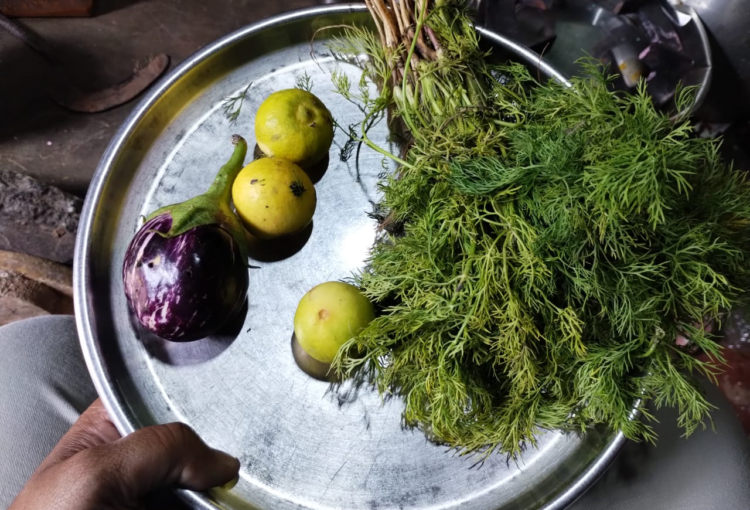Eco-Friendly Mud Refrigerator Project Inspired by PV Hiremath’s Eco Village, Halligeri at Chiguru Manepatha Center, Hebballi

Chiguru Manepatha Center in Hebballi continues to be a source of innovative projects that not only reflect the skills of its students but also underline the center’s commitment to sustainable solutions. A noteworthy endeavor has recently emerged from one student who, inspired by the eco village in Halligeri led by P. V. Hiremath, has successfully designed a low-cost refrigerator constructed entirely from mud.
Project Genesis:
The student, Sandeep, drew inspiration from the eco village in Halligeri, guided by the visionary P. V. Hiremath. Having witnessed the sustainable practices implemented in the eco village, particularly the use of locally sourced materials like mud, He was motivated to apply this knowledge in a tangible way. The idea of a mud refrigerator was born, aiming to bring an affordable, eco-friendly cooling solution to communities by PV Hiremath. He had demonstrated at eco-village.
Materials and Design Influences:
The mud refrigerator project is a testament to the integration of traditional wisdom and modern innovation. Drawing upon the practices observed in the eco village at Halligeri, Sandeep utilized locally available mud as the primary building material. This choice aligns with the eco-friendly ethos witnessed in eco-village and emphasizes the importance of sustainable living.
Construction Process:
The construction process involved a careful balance of traditional techniques and contemporary design principles. Sandeep incorporated insights gained from the eco village, ensuring that the refrigerator not only embraced ecological materials but also addressed practical cooling needs. The project aimed to replicate the success of the sustainable initiatives witnessed in eco-village and adapt them to the context of a refrigeration solution.
Functionality and Features:
The mud refrigerator boasts functionality comparable to conventional models. The interior is designed to accommodate various perishable items, and the cooling mechanism, inspired by observations in eco-village, efficiently maintains low temperatures. This project not only provides an affordable alternative to conventional refrigerators but also serves as a reminder of the viability of eco-friendly practices in everyday life.
The project’s connection to the Halligeri eco village reflects a broader commitment to community impact and sustainability. By employing materials and design principles observed in Halligeri, Sandeep has created a refrigerator that not only meets local needs but also contributes to the broader goals of environmental consciousness.

Conclusion:
The mud refrigerator project by [Student’s Name] at Chiguru Manepatha Center stands as a testament to the ripple effect of inspiration from places like the eco village led by P. V. Hiremath. This initiative not only highlights the student’s ingenuity but also reinforces the idea that sustainable practices, when observed and adapted, can lead to practical, cost-effective solutions. As the project gains recognition, it has the potential to inspire others to explore the integration of eco-friendly practices in their endeavors, echoing the positive impact witnessed in Eco-village.
Vegetable were in good eatable condition for almost three days
